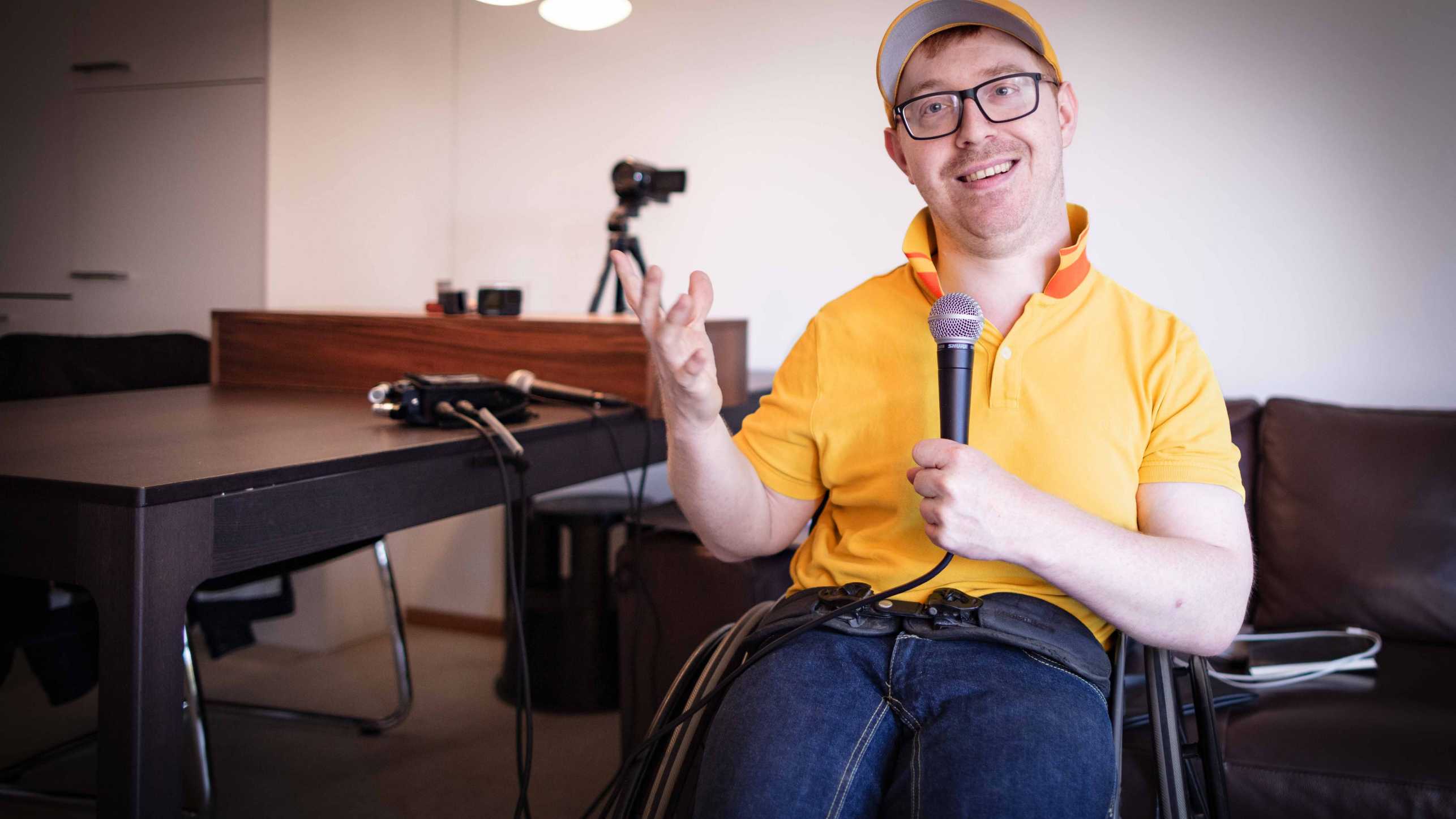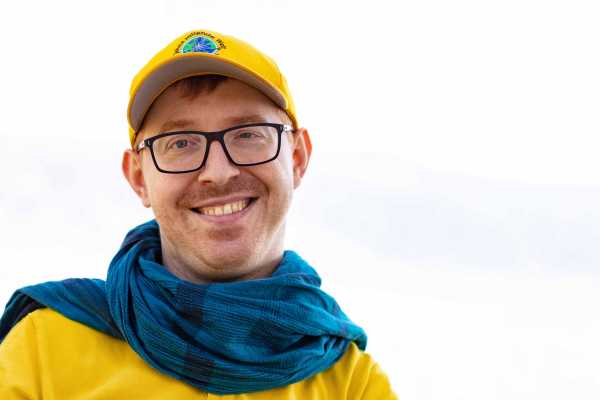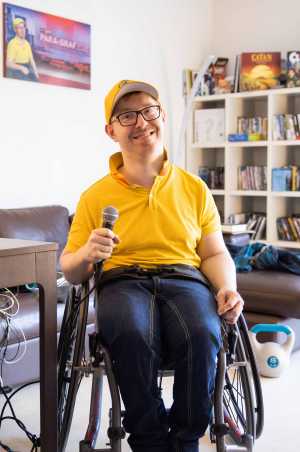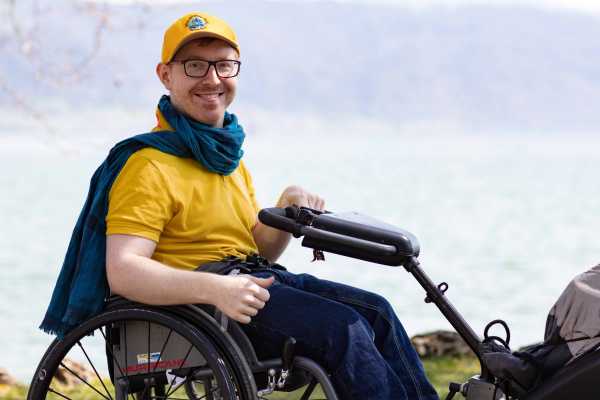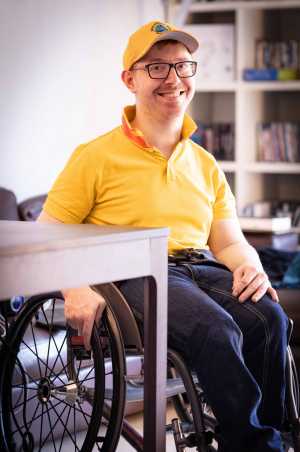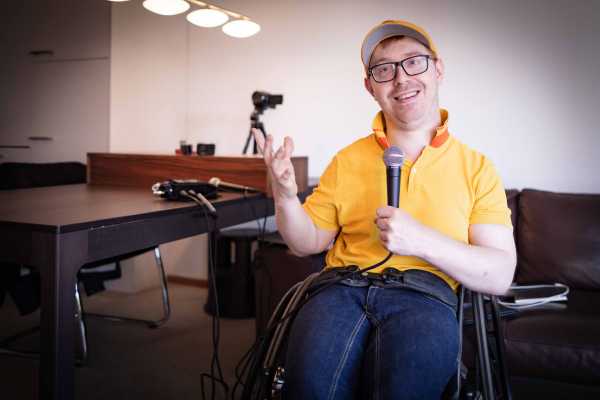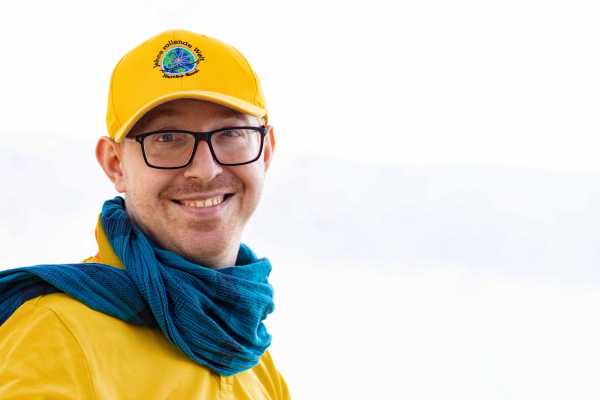Jahn Graf - bridge builder and TV presenter
RESC: How do you usually introduce yourself when you meet someone new?
Jahn Graf (JG): I am a bridge-builder, YouTuber, TV presenter, and someone who is affected by disability issues.
RESC: What is your “superpower”?
JG: My superpower is my persistence. Even as a child I knew that I wanted to be on TV one day. I didn’t know how to get there at the time, but it was a firm goal of mine. Because of my disability I went to a special school, where I completed a business training course in bookkeeping. After that I spent a while working as a bookkeeper at a trust company. In 2015, severe kidney damage changed my life abruptly. After recovering, my dream of working in television was rekindled. I gave up my bookkeeping job and started a YouTube channel, which I initially used to discuss films (another passion of mine). Later on, I positioned myself as a YouTuber in a wheelchair, concentrating on the topic of disability. This new focus increased my visibility to the point where I was noticed by Swiss Radio and Television (SRF), who commissioned me to present the Tokyo Paralympic Summer Games in 2021. I presented the “Para-Graf” programme again during the Paralympic Winter Games 2022 in Beijing. Today I’m living out my TV dreams, thanks to my persistence, my inquisitiveness and my gift of the gab.
RESC: What are people without physical limitations most amazed about when they meet you?
JG: People often tell me that I’m very approachable and easy to talk to, even on serious topics. Many people are anxious about interacting with people with disabilities. With humour, openness and a touch of self-mockery, I seem to encourage the person I’m talking with to get over their initial hesitation. I see myself as a bridge-builder. What I mean by that is that I’m happy to give insights into my life with a disability and I’m interested in the stories that my interviewees have to tell. That often acts as an icebreaker, and it opens doors.
RESC: In what situations do you feel “dis-abled”?
JG: Public spaces are often inaccessible to those with disabilities. This is sometimes the case even at universities. It’s a downward spiral: people with disabilities are not visible because public spaces are not accessible to them; and because they can only participate in public life to a limited extent, they are not visible. Until all people are given a level playing field in which to participate, there will be no equality of opportunity.
RESC: What is your greatest wish for the future?
JG: What I want most of all is greater visibility. People with disabilities should be visible in society, so that people without disabilities also find it natural to interact with them. Any anxieties over contact with disabled people should be allayed by dialogue. An integrated approach to schools could also contribute to this. This is not yet fully developed even today. A society in which every person is perceived as an individual, independent of disability, ethnicity, gender, etc., ought to become the new normality. In short, disability should no longer be seen as a defect, but as a state of living.
Bio
Jahn Graf, who has had cerebral palsy since birth, lives by the motto “Impossible is just an opinion”. Following his training as a bookkeeper at INSOS (industry association of service providers for people with disabilities) and his early career in that field, he has worked as a YouTuber and TV presenter since 2015 (including “Para-Graf” for Swiss television company SRF). Jahn campaigns for dialogue and more understanding in society.
external page “Jahn’s rollende Welt” [Jahn’s world on wheels] on YouTube
Miriam Daepp of the Competence Centre for Rehabilitation Engineering and Science (RESC) spoke with Jahn Graf in April 2022.
